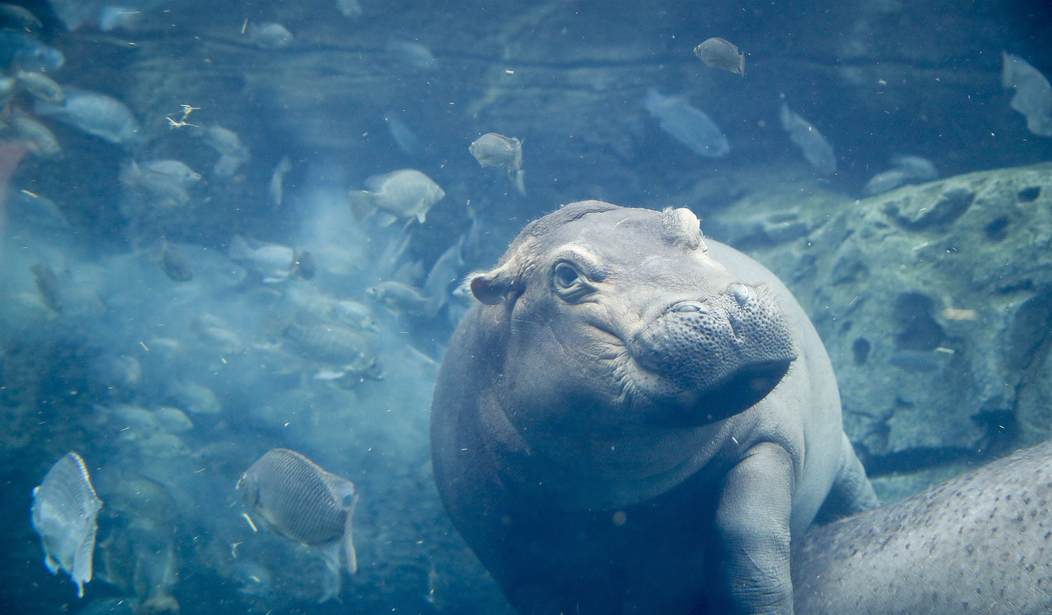Do you know the difference between a hippo and a Zippo?
A hippo is really heavy. A Zippo is a little lighter.
Seriously, though: Some hippos are a little smaller — and lighter — than others, including the endangered West African Pygmy Hippopotamus, which is found mostly in Liberia. The status of that animal makes it all the more interesting that the Attica Zoological Park in Athens, Greece, has recently had a pygmy hippo born in captivity.
This week, a rare pygmy hippopotamus was born in Athens' Attica Zoological Park. The species is endangered, making the birth an exciting event for those working to rebuild its population. It was also the first pygmy hippo birth this particular zoo has witnessed in a decade.
A lack of male pygmy hippos in captivity has proved challenging for repopulation efforts. Therefore, zookeepers and conservationists are even more ecstatic about this most recent – and yet unnamed – baby's arrival because of its sex.
It's not widely known, but zoological parks — zoos — do some benchmark work helping to preserve endangered species, like the pygmy hippo. Black-footed ferrets, golden lion tamarins, red pandas, and Sumatran rhinos are among the species that exist now primarily in captivity — in zoos.
See Related: Pablo Escobar's Cocaine Hippos Do Exist, and Colombia Is Sterilizing Them
But that preservation comes at a cost.
All of the care that goes into zoo breeding programs has helped many other animal species survive, as well. The Golden Lion tamarin, a small monkey species found in Brazil, was near extinction in the 1970s. But a global captive breeding program – where around 150 zoos worked together to save the species – increased the numbers. Today, there are over 4,800 golden lion tamarins.
Similar efforts have been made to save the California Condor – a species that went from only 30 to now an estimated 347, according to the National Park Service. And thanks to conservationists' massive efforts in New Zealand, two wild brown kiwi chicks were recently birthed in Wellington last year – the first wild births of the flightless bird in over 150 years.
The California condor is one success story, but in most cases, animals bred and raised in captivity will never be able to live in their natural habitat. Predators, in particular, require a lot of learning to hunt and to kill before they can survive on their own. In the cases of mammals in particular, that learning is usually carried out by an animal's mother, and even with this natural education, most predators don't survive their first year. In zoos, the survival rate is, of course, much higher — but the animals have no way of obtaining any of the skills they need to survive in the wild.
And, of course, in many cases, the natural environment these animals inhabited no longer exists.
We do not know what will become of the world's remaining pygmy hippos. There do remain wild populations, not only in Liberia but small numbers also in Sierra Leone, Ivory Coast, and Guinea. So the beasts' outlook isn't all that bad, although there remains the problem that they live in a part of the world where many of the locals will view them as either a pest or, potentially, dinner.
At least, in Athens, there is one more pygmy hippo in the world. He may never be able to live in the wild — but he will live, and hopefully will breed more baby pygmy hippos. And that's not nothing.














Join the conversation as a VIP Member